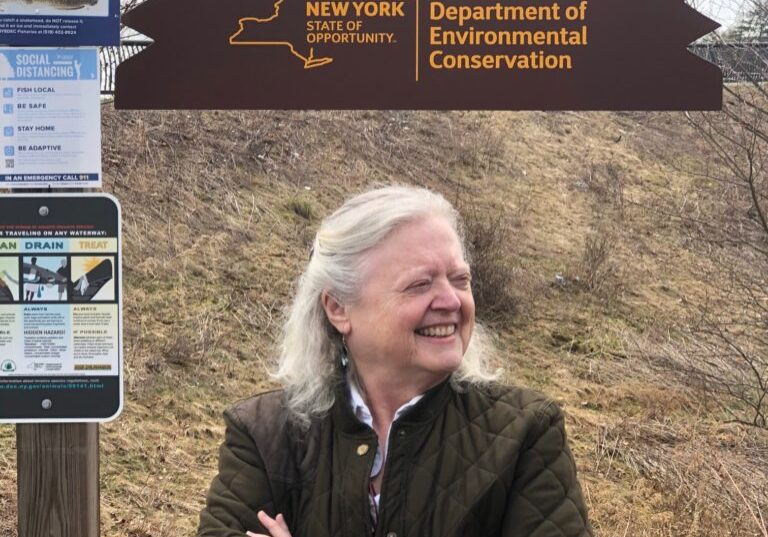
Blue Marsh conversation: Equitable access to recreation, HABs and federal funding
| August 11, 2023
If you want to spark a conversation about the environmental problems and possibilities of the Delaware River Basin, you couldn’t pick a better spot than Blue Marsh Lake, near Reading Pa.
And that was the aim of Congresswoman Madeleine Dean (PA-04) who co-hosted a roundtable at Blue Marsh with the Delaware River Basin Commission on Aug. 3 with about 15 other interested parties — legislators, recreation and drinking water experts and members and staff of the United States Army Corps of Engineers.
Lt. Col. Jeffrey Beeman, newly appointed commander of the USACE Philadelphia District, welcomed everyone and gave a brief description of Blue Marsh.
Blue Marsh is a 6,100-acre project of the United State Army Corps of Engineers with a 1,500-acre lake, which is a popular destination for many in the nearby Reading area. The lake was created by a dam on the Tulpehocken Creek in 1979.
The conversation ranged from a really big global lens, to the Delaware basin, to the Blue Marsh Lake itself.
Dean kicked it all off with a sobering restatement of what John Kerry, U.S. Special Presidential Envoy for Climate, said in a speech to the United Nations:
“It’s no longer climate change. It’s here. Climate crisis,” she said, paraphrasing his speech and taking special note of the flash flooding in Bucks County that claimed seven lives a few weeks ago.
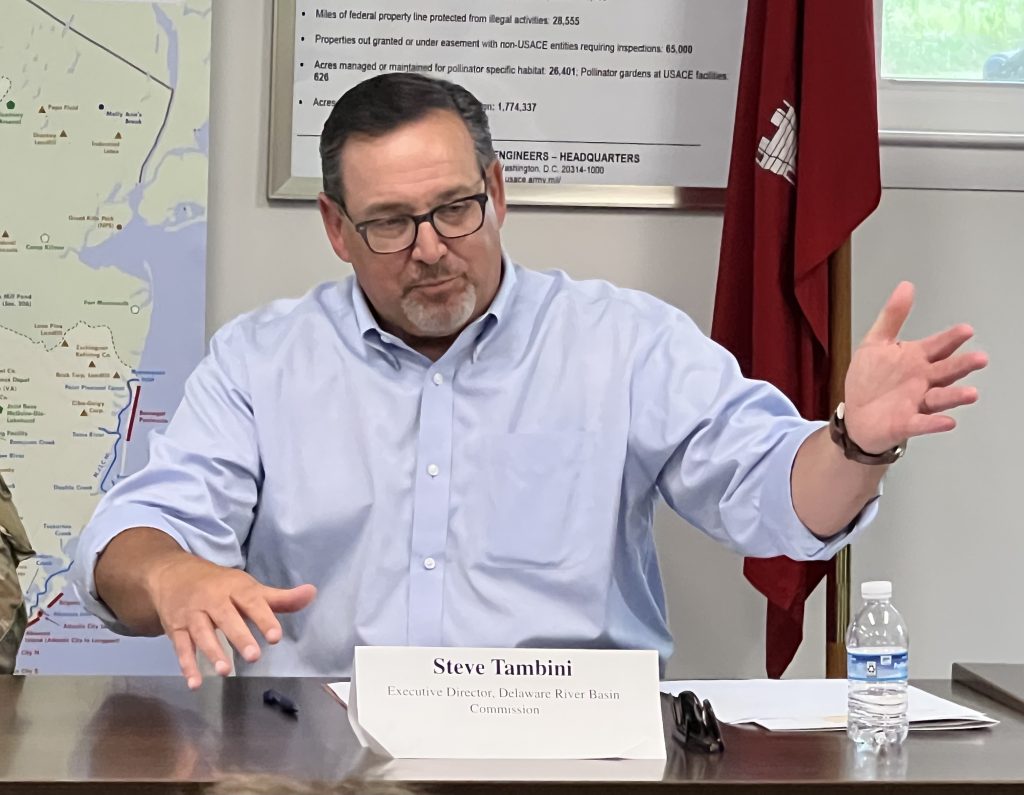
Steve Tambini, executive director of the Delaware River Basin Commission, agreed with Dean’s characterization and focused on giving a brief bird’s eye view of the basin, noting that wherever you stood on the shores of the Delaware, there was another state on the other side. The basin is in part of four states: New York, Pennsylvania, New Jersey and Delaware.
“But water doesn’t really care about political boundaries,” he said, and the work to maintain and improve the river’s water quality, as well as ensuring its water supply, is shared among those states and the USACE, through the DRBC.
He explained that the Delaware is a free-flowing river — the only dams are on tributaries, like the one here at Blue Marsh.
And this dam is important not just for the purposes authorized by Congress: flood control, water supply, water quality and recreation.
In addition, the DRBC buys an allocation of reservoir water from here at Blue Marsh and from another USACE dam at Beltzville, near Lehighton, Pa., to augment the river’s flow downstream in times of drought.
Tambini asked and answered an important question for this audience, especially: “Do all communities share the benefits and burdens of our water supply system?”
“I think the answer is no,” he concluded.
Access to recreation
Which led to a conversation among the participants that focused on equitable recreation opportunities.
Here at Blue Marsh, there are 635 parking spots, explained Scott Sunderland, natural resources manager at Blue Marsh, and there’s often a line of cars waiting to get in, especially on holiday weekends.
Craig Lutz from Senator Christopher Gebhard’s office, asked about plans for new spaces. Sunderland said there are currently no plans to increase the number of parking spaces since the infrastructure is at capacity with regard to restroom facilities and the current sewage system.
Of course, that’s for people with cars.
Pa. State Rep. Johanny Cepeda-Freytiz (D-Reading), though born in New York City, has close ties with the Dominican Republic, and expressed concerns that the community she represents “are not exposed to our outdoor spaces.”
“We don’t do enough to see more connection,” she said.

Which brought up a concern that many in the environmental arena have, as expressed by Elaine Paul Schaefer, executive director of Schuylkill River Greenways: How do we reach people who don’t even know that places like Blue Marsh exist?
One question that drew a lot of nodding heads: How do we reach your community?
“We’re frustrated — trying, trying to gain the trust of the Latino community,” said Brendan Lederer, assistant director, Berks County Parks and Recreation. “Are there bus trips? School trips? Seniors? With no fees?”
“How are we marketing locally?” asked Cepeda-Freytiz, which led to a discussion of marketing generally and the thought that maybe it’s not focused locally enough.
The group was reminded that Pennsylvania now has a new director of outdoor recreation — Nathan Reigner — and that might mean the state is really paying attention to how important it is for residents as well as for local economies.
Schaefer pointed out that the more people get to know the outdoors, the more they want to take care of it, which is good for all of us.
Dealing with harmful algae blooms
Harmful algae blooms were another hot topic, and like many lakes in the watershed, Blue Marsh is subject to them, especially from July to October.
Blooms are formed from microscopic blue-green algae, also known as cyanobacteria, in warm, nutrient-rich water and most often look as though a can of paint has been spread on the surface of the water.
Blue Marsh has an advisory that provides up-to-date information about the state of the lake as well as information about HABs.
Heavy rainfall and significant runoff convey nutrients to the reservoir. When followed by hot weather, blue-green algae can thrive and multiply.
With input from USACE’s Engineer Research and Development Center, Blue Marsh is trying different things to see what works, like looking for ways to increase the oxygen levels in the lake that might retard blooms.
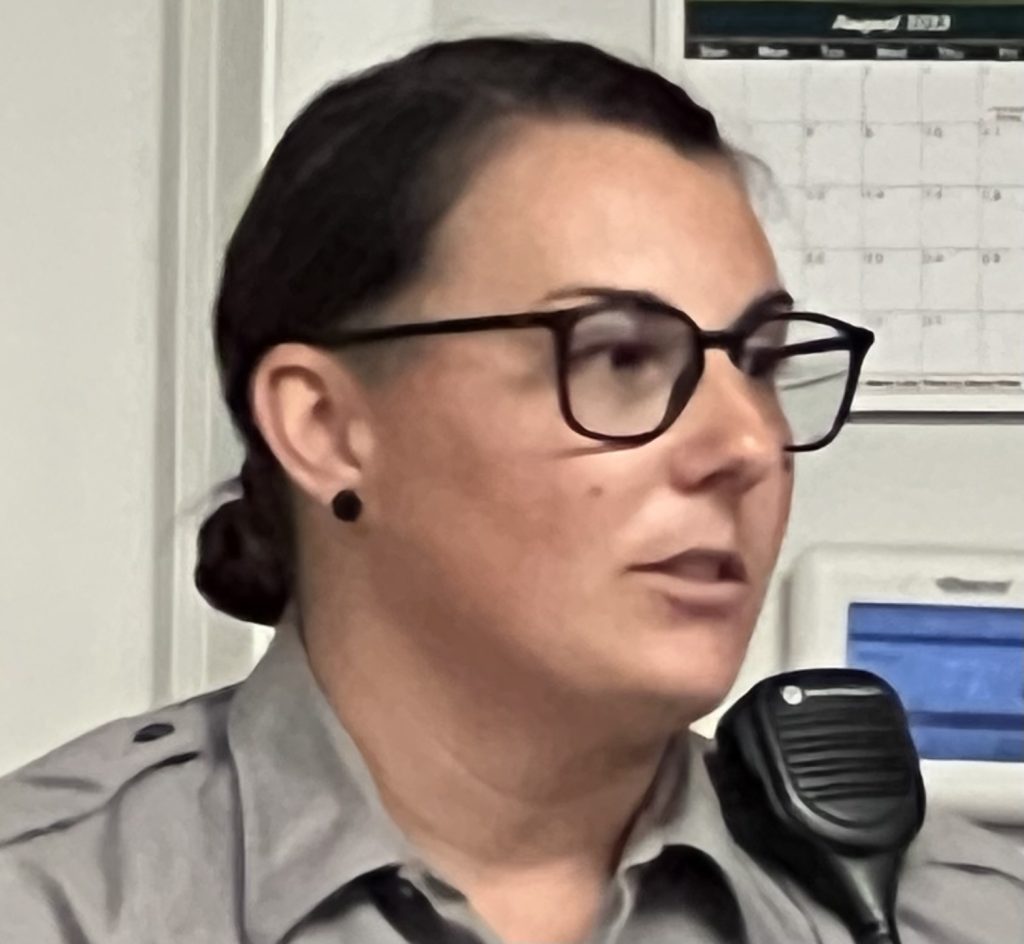
Brianna Treichler, a natural resource specialist at Blue Marsh, said they are also working with local organizations such as the Tulpehocken Creek Watershed Association and Berks Nature to look at water quality at the different in flows of the lake to be able to prioritize other potential projects.
“There’s not one solution that fits all cases,” she said. She noted that 50 percent of the land in the watershed of the lake is agricultural.
“The fertilizer that’s used in farming can tend to run off into nearby streams, increasing the nutrient load, add to that stormwater runoff and that’s the likely reason for HABs here,” she added.
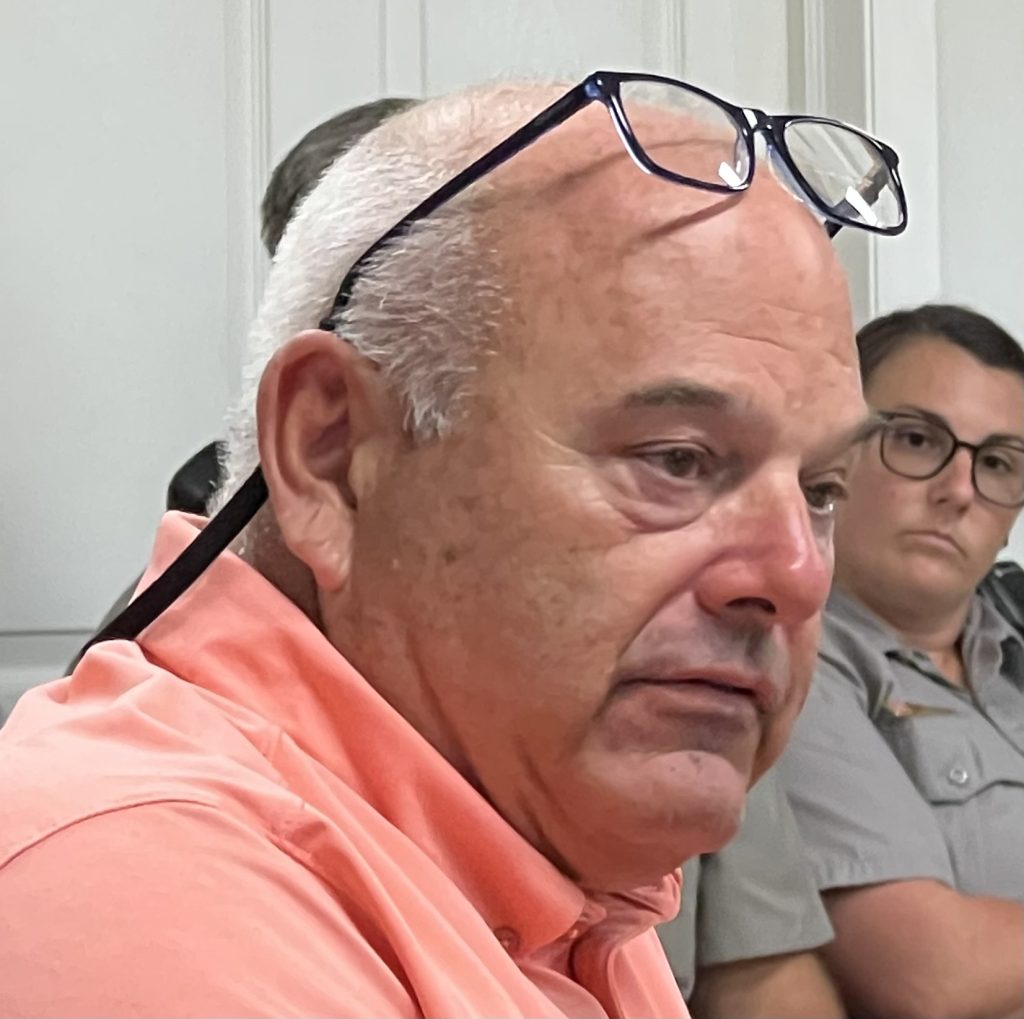
Chip Bilger, executive director of Western Berks Water, took on a different problem that the basin faces: Per- and polyfluoroalkyl substances, more commonly known by the initials PFAS.
Once these substances — harmful to humans with repeated exposure — were isolated to areas where, for example, firefighting foam was used at military bases. Now, Bilger explained, since they spread so easily, they are everywhere and pose a challenge for water treatment.
His biggest concern was that the federal money that could help is “problematic” and “somehow logjammed in PENNVEST.” (PENNVEST is the funnel through which federal dollars are distributed to the state, mostly through low-interest loans.)
He had an appropriate audience in Congresswoman Dean, who serves on the Regional Leadership Council, a House Democratic committee, which is charged with overseeing how those dollars are spent, especially with regard to the Bipartisan Infrastructure Law.
During the session, someone mentioned the Pennsylvania Constitution, Article 1, Section 27, the so-called Green Amendment, and Dean referenced it to say:
“We’re stewards and trustees. It’s a command from our Constitution.”
§ 27. Natural resources and the public estate.
The people have a right to clean air, pure water, and to the preservation of the natural, scenic, historic and esthetic values of the environment. Pennsylvania’s public natural resources are the common property of all the people, including generations yet to come. As trustee of these resources, the Commonwealth shall conserve and maintain them for the benefit of all the people.

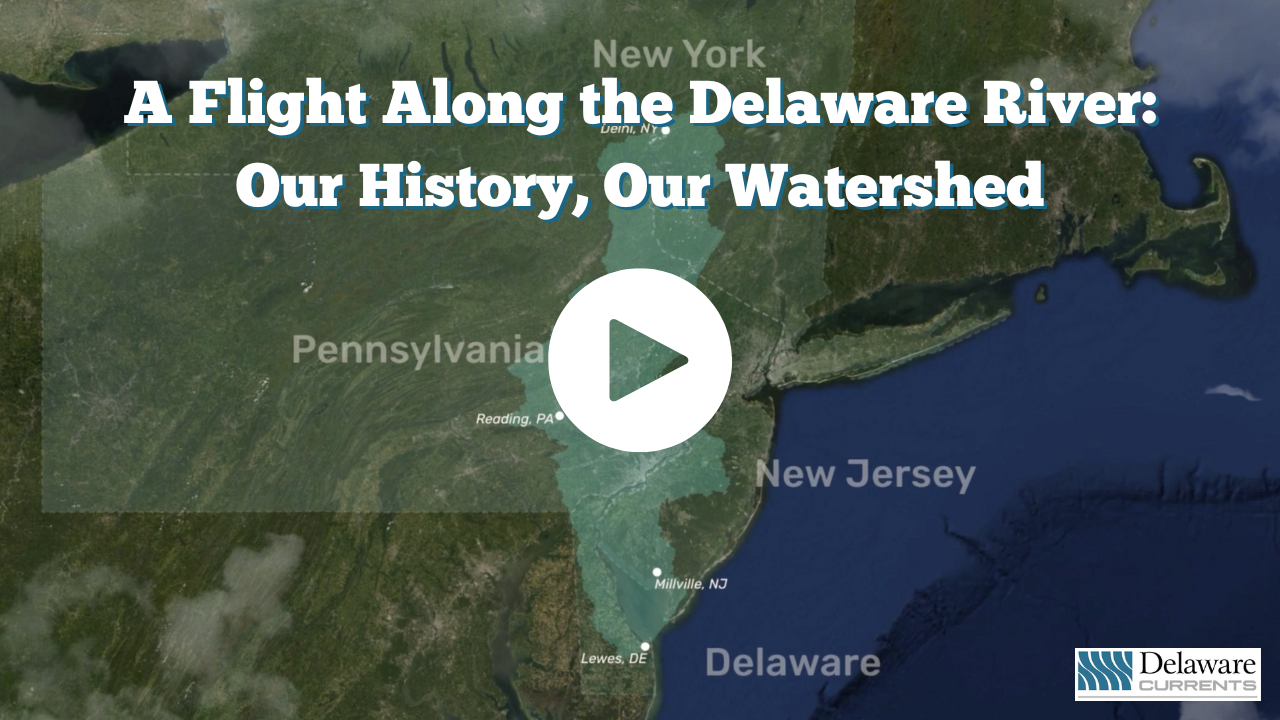
![DC_Image [Image 4_Assunpink Meets Delaware] meets Delaware The Assunpink Creek on its its way to meet the Delaware River. The creek passes through woods, industrial and commercial areas and spots both sparkling and filled with litter.](https://delawarecurrents.org/wp-content/uploads/bb-plugin/cache/DC_Image-4_Assunpink-meets-Delaware-1024x768-landscape-14f069364113da5e8c145e04c9f2367c-.jpg)
